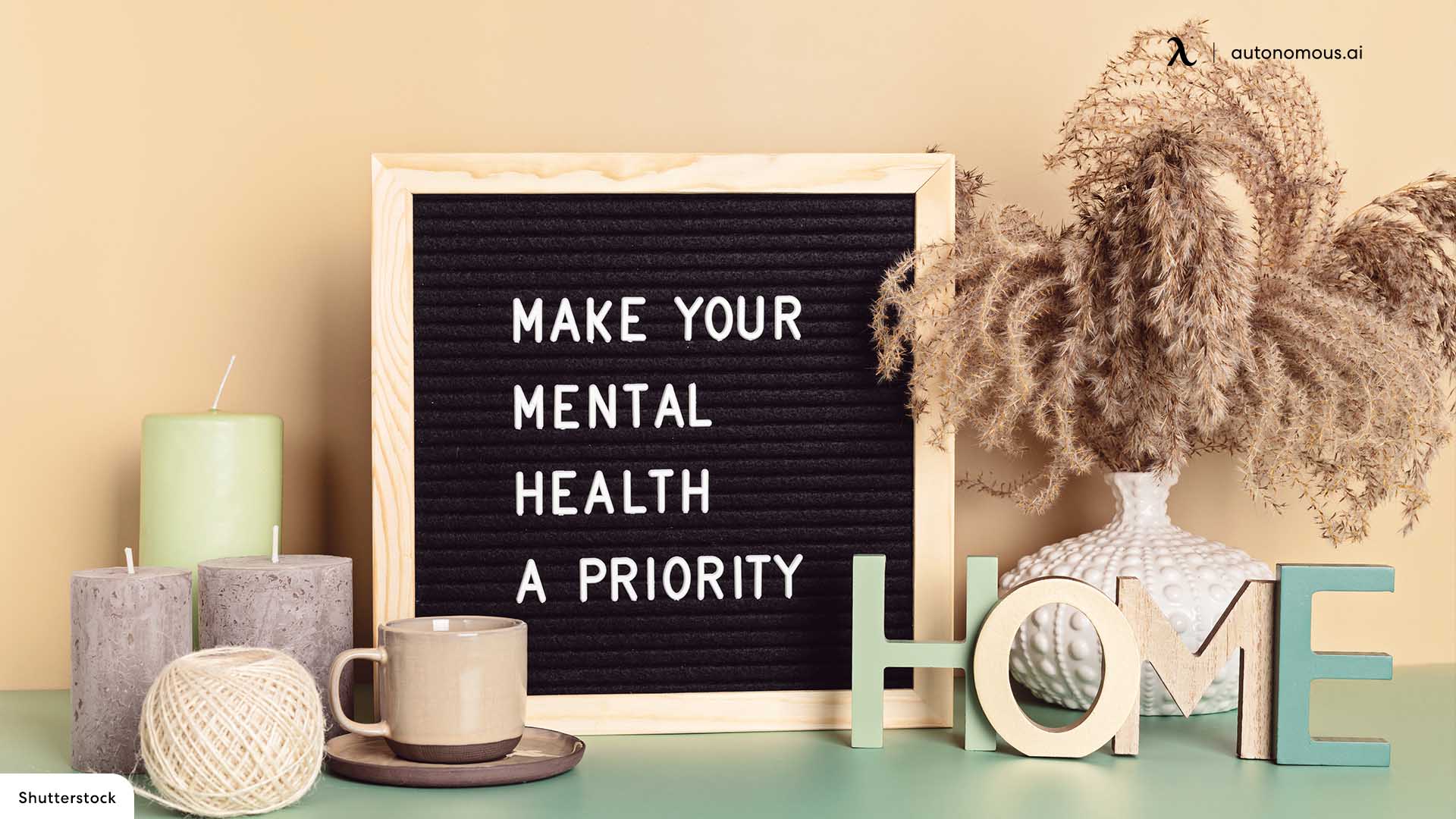/https://storage.googleapis.com/s3-autonomous-upgrade-3/static/upload/images/new_post/manage-workplace-anxiety-depression-4209-1647584430830.jpg)
94% of office workers complain about stress and anxiety in the workplace. Workplace anxiety is one of the major reasons for losing employee efficiency and may also give rise to various health issues such as clinical depression and high blood pressure. Though workplace anxiety is mostly associated with a toxic workplace and loss of work-life balance, there are several underlying issues.
In some cases, an office could be a healthy environment to work in, but an employee could be having a hard time managing workplace anxiety. This also means they might be under the constant fear of making mistakes at work, have regular anxiety about work performance, and suffer from workplace anxiety symptoms.
Suppose you or your employees also exhibit the signs of workplace anxiety. In that case, they can take multiple measures to help in overcoming workplace anxiety and let them lead a normal life. This article will cover all you need to know about workplace anxiety and depression and some helpful tips to overcome them.
What Is Workplace Anxiety & Symptoms

Workplace anxiety is similar to regular anxiety, with the reason for anxiety being work. Workplace anxiety covers a user feeling anxious, disturbed and extra sensitive regarding work. They might be under constant stress while thinking about work and worry about completing it on time.
Workplace anxiety does not only occur when there is a lot of work to do, but some users may feel work anxiety and lack the confidence to complete work on time as soon as they step into their offices.
This uninvited stress can hinder performance and result in mental block depression, which lowers productivity and makes an employee more anxious. Workplace anxiety makes an employee move in circles where they end up upset and devastated and hating themselves. Here are some common symptoms that you might be suffering from work-related anxiety.
- Failure to meet deadlines or taking an excessive amount of time to complete tasks
- Forgetfulness
- The inability to focus
- Inability to concentrate or excessive self-concentration
- Sick days or a decrease in productivity
- Family life is affected as a result of the spillover effect.
- Tension, headaches, pressure, dizziness, and an upset stomach are examples of somatic (body) ailments.
How to Manage Workplace Anxiety?

If a sudden meeting gives you anxiety or maybe you are stressed about how to overcome phone anxiety when taking a call with a client, managing workplace anxiety needs a little practice and a few steps. But the good news is that you can easily manage workplace anxiety and improve your performance at work with these easy steps mentioned below.
Speak to Your Boss

If you are facing anxiety because you are a new employee or maybe due to a personal reason, it is always a great idea to speak to your superiors. Though talking to your manager about such issues might not always be very comfortable, most of the time, it is the only way to feel a bit relieved.
Sometimes the bosses can accommodate your needs and understand the things that are making you anxious. This will also help your boss understand your recent lack of performance, and maybe they could help you talk out of the things that are making you anxious in the first place.
Talk to a Colleague
If you share your feelings with a trustworthy coworker, they may be able to assist you in staying on course. Having someone at work who understands what you're going through can make you feel more socially supported, which can help you feel less stressed. It could also help you feel safe in a place where you feel no one understands you. Sometimes we don't need help, but we need someone to listen, and a good vent has proven to benefit people with anxiety.
Accept your Anxiety

This is the very first step to manage workplace anxiety. Anxiety is something that everyone goes with. It's a natural reaction to stress. When it arrives, let it in. Acceptance should be practiced. Make room for anxiety rather than drive it away (which will only make you feel more overwhelmed and out of control). It appears to draw your attention to something.
Allowing some anxiousness to exist while you work will make it less irritating in the long term.
Discover the Source of Anxiety
Sometimes your anxiety could be a sudden thing in your life. If you haven't been feeling anxious for a long time, then chances are a new change or something new in your life has been keeping you on edge. It is wise to approach with a keen eye and find out what’s making you anxious. Maybe it’s a change in your routine, lack of sleep, your bad chair or a loud colleague who has just joined the workplace.
Sometimes physical stress can also result in anxiety. Make sure you have an ergonomic chair and an office standing desk that isn’t putting your body under constant agony while you are working.
Taking Time Out

One of the simplest and most effective ways to deal with stress-induced anxiety is to eliminate yourself from the situation. If a report or a deadline is causing you anxiety, then you should give yourself a break. This might seem contradictory to someone worried about every passing second, but a little time out for your brain does a lot more good than you can imagine.
Accepting that you are doing your best and will continue to do so will put you in a position of power and help you restore your confidence. It is also a good practice to mumble some affirmations each time you feel stressed about work.
Avoid Workplace Triangles
Many workplaces are established on coworker gossip and venting about others. While this may bring short comfort or entertainment, it adds to the body's strain and stress. When an office is filled with negativity, you can almost feel it floating in the air. It's called a "triangle" when you bond with someone by chatting about a third person, and it's an unhealthy approach to deal with work anxiety.
Eating Right

Simple changes to your self-care regimen can help you feel less anxious, have more energy, and be more focused.
This also implies consuming nutrient-dense foods at mealtimes can help you stay energized and focused. Processed sugars should be avoided wherever feasible, as they exacerbate anxiety symptoms.
Subscribe for a 10% discount on your first order.
Sign up for our weekly update and be the first to know about our specials & promotions.

/https://storage.googleapis.com/s3-autonomous-upgrade-3/production/ecm/240417/april-10-off-offer-2024-1920x540-CTA.jpg)
/https://storage.googleapis.com/s3-autonomous-upgrade-3/production/ecm/240417/april-10-off-offer-2024-720x1200-CTA.jpg)
/https://storage.googleapis.com/s3-autonomous-upgrade-3/production/ecm/240415/bulk-order-apr-2024-offer-720x1200-CTA-min.jpg)
/https://storage.googleapis.com/s3-autonomous-upgrade-3/production/ecm/240415/pod-offer-apr-2024-720x1200-CTA.jpg)
/https://storage.googleapis.com/s3-autonomous-upgrade-3/static/upload/images/new_post_author/admin-1.png)